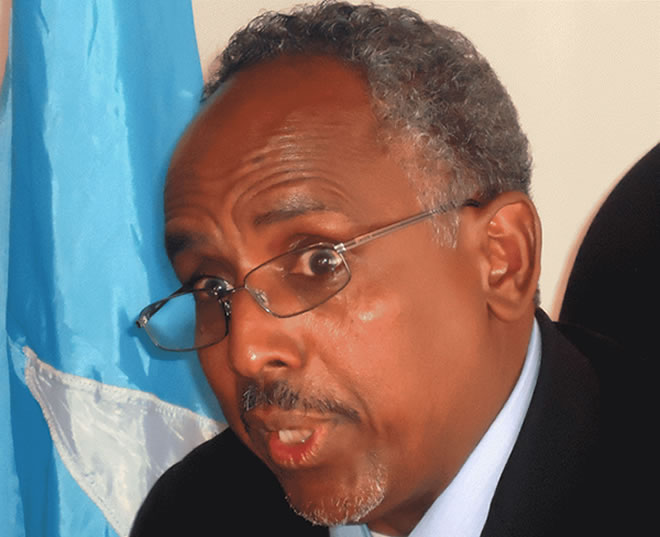
Hussein Abdi Halane, Minsiter of Finance & Treasury, needs to persuade businesses to support a new comprehensive tax system in Somalia.

By Edmund Blair
Wednesday, February 26, 2014
That could all be about to change if newly appointed finance minister Hussein Abdi Halane gets his way and manages to persuade businesses to support a new comprehensive tax system in the ravaged country.
He knows Somalia's federal administration - less than two years old - will have to tread carefully to rebuild confidence in a state where trust in authority was destroyed by two decades of clan warfare and Islamist militant rule.
"It is a lot of effort," he told Reuters by phone from Mogadishu. "We will make an extra effort to get consensus and collaboration from them, rather than imposing it unilaterally."
Halane and his cabinet colleagues also have to prove the government can set its own house in order after being buffeted by graft allegations. Two central bank governors resigned in quick succession last year, unsettling Western donors.
So alongside meeting executives of telecoms firms, money transfer companies and other businesses to negotiate over tax rates and collection, Halane is seeking to build a transparent financial system to draw in more foreign budget assistance.
For now, only Turkey and Norway provide such help, with others saying direct budget aid remains a long way off.
"We want more budgetary support," said the 58-year-old former east Africa director for the charity Save the Children, who was confirmed in his ministerial post in mid-January.
"We hope by the middle of the year ... we will address some of the issues they (donors) are concerned with and their confidence will be built up," said Halane, who was also finance minister in a transitional administration between 2010 to 2011.
He pointed to a new financial governance committee, where Somali officials sit with the World Bank, International Monetary Fund and African Development Bank. They met for the first time on Sunday and will help advise on financial affairs.
His immediate focus is revising the budget for 2014. The numbers approved by the last cabinet in November forecast spending this year of $221 million, a paltry sum for a nation of 10 million people but double the budgeted $114 million for 2013. By comparison, in 2013 the United Nations pumped in more than half a billion dollars in aid for basic humanitarian support.
The minister said his revisions were likely to see forecast spending rise above $221 million to meet the growing needs of a federal government which is slowly trying to expand its reach while battling al Shabaab Islamist insurgents.
'LONG LIST'
Till now, the state's own revenues have relied almost solely on customs collection from Mogadishu airport and port. Rising imports will give those a boost, but not by enough.
That has turned Halane's focus to hiking inland revenues through taxes on money transfer firms which have thrived from the huge Somali diaspora sending cash home, mobile phone firms that have mushroomed in the absence of fixed infrastructure and other areas where business is picking up, such as land sales.
"It is a long list," the minister said.
It has been tried before. Al Shabaab Islamist militants angered local business with their own informal taxes in areas under their control, and a previous transitional government struggled to impose fees on transport and other services.
Halane said it was too soon to say what tax rates would be, but said his goal was to cover 50 to 60 percent of forecast spending from domestic sources, with donors filling the gap.
"Our system is we first develop what we consider a reasonable tariff, starting very low, since they have not been taxed for a while, and then enter negotiations," he said.
"In fact I am meeting the general managers of the telecoms today at 2 o'clock," he added, speaking on Tuesday this week.
He said he was working with Mogadishu's mayor to tax land sales in the city, where a building boom is underway amid the destroyed remains of elegant colonial Italian architecture.
"I think it is doable," the minister said. "It is probably a little bit early to give you the exact forecast, but definitely it will increase our income."
Donors, however, will remain a vital part of the equation.
"Our donors I hope will continue to help," he said, saying the government aimed to pick a new central bank board and governor by April, with the interim governor staying till then.
The resignation of two central bank governors last year and allegations by a U.N. monitoring group of government corruption rattled the international community, who have staked their hopes on former academic President Hassan Sheikh Mohamud.
Halane said he was working to reassure them, adding: "We are certainly addressing all their concerns."
(Editing by Richard Lough and Andrew Heavens)